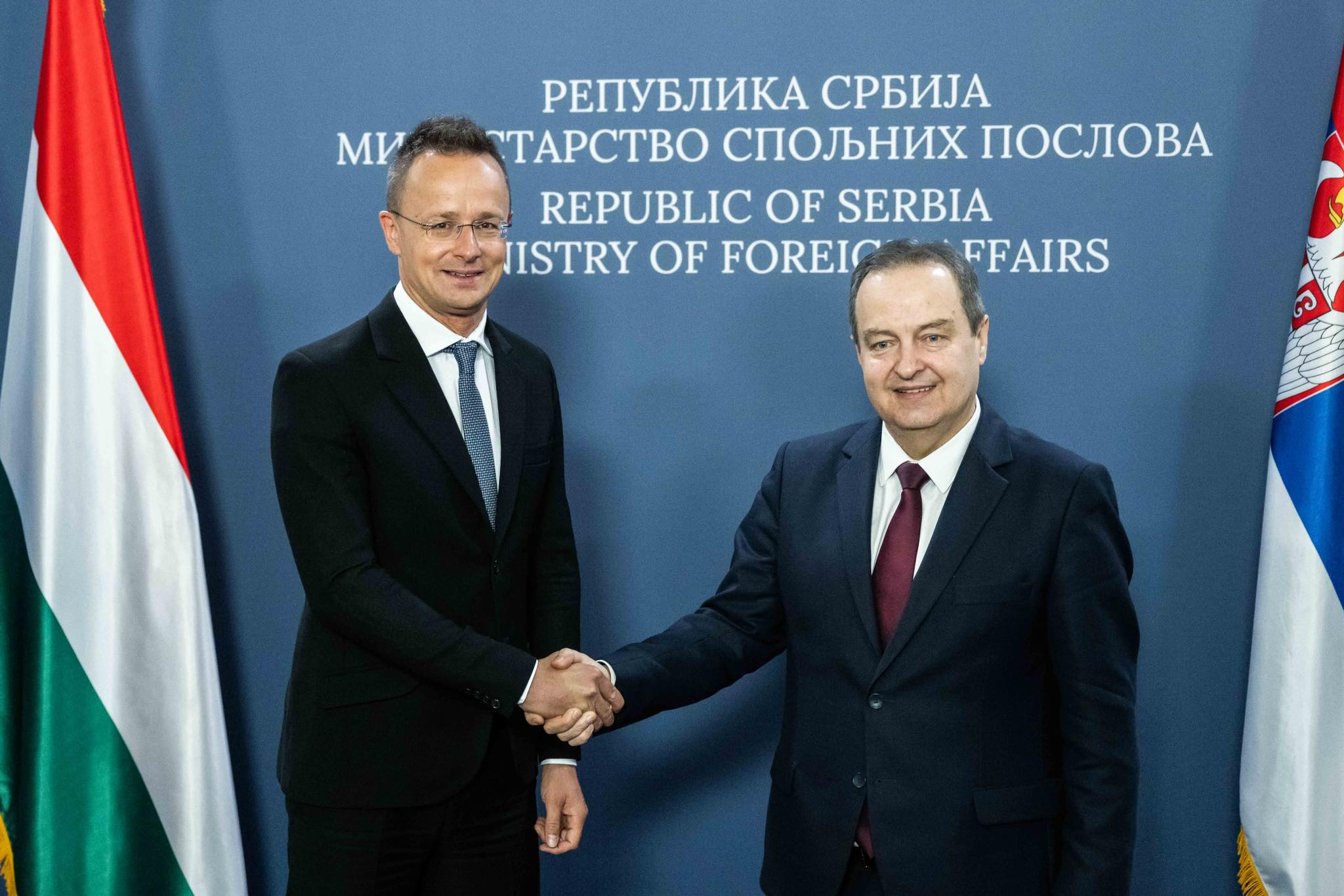
Hungary's Prime Minister and Aleksandar Vucic vowed to intensify defense industry cooperation between their countries.Continue reading

Minister of Foreign Affairs and Trade Péter Szijjártó held talks in Belgrade on Wednesday, where among other issues, the two countries discussed labor market cooperation, accession to the European Union, and the newly planned oil pipeline.
The labor market dimension of Hungarian-Serbian cooperation could also be strengthened, as there is a great demand for guest workers for jobs in Hungary that are not being filled by locals, the foreign minister pointed out.
At an event organized by the Hungarian HR service provider Prohuman, which is entering the Serbian market, Péter Szijjártó stated that the demand for well-qualified labor is constantly growing, and while the aim is to fill the vacancies mainly with Hungarians, it must be seen that there are positions for which it is very difficult to find local workforce.
He added that there is a framework for this, which provides certainty for all and allows qualified employment agencies to bring in workers from 15 countries quickly and easily, without any special authorization procedure. “Serbia is one of these 15 countries.
Because Serbian workers are hard-working, disciplined, and skilled, they are very popular with Hungarian employers,”
he emphasized.
Szijjártó also participated in the business forum of the Serbian Chamber of Economy, where he said that in the current difficult situation, the enlargement of the European Union could bring rapid improvement in the competitiveness of the continent, and that the EU needs Serbia’s accession more than the other way around.
He stressed that Hungary is a big supporter of the Open Balkan initiative, and the government has also proposed that the next summit be held in Budapest. He emphasized that
close cooperation between the EU and the Balkan states was essential for competitiveness, as well as energy security.
Moreover, the minister highlighted that the government would continue the economic development program in Vojvodina because “the more successful Serbia is, the more successful Hungary is.”
During the visit to Belgrade, the construction of a new oil pipeline between the two countries was also discussed, and following the meeting of the Hungarian-Serbian Joint Economic Committee, Szijjártó said that the new 128-kilometer-long pipeline will strengthen the security of supply. The contract for the construction of the pipeline, which is planned in cooperation between Hungarian oil and gas company MOL and Serbian Transnafta, will be signed at the government summit on June 20.
In order to strengthen energy security in both countries, it was also agreed that Hungarian company MVM and Serbian company Srbijagas will set up a joint regional gas trading company, and that Hungary will continue to store hundreds of millions of cubic meters of natural gas for Serbia this year.
Today, there is no Hungarian energy security without Serbia, and there is no Serbian energy security without Hungary,”
the foreign minister stressed.
In addition, a new, modern border crossing between Röszke and Horgos will be built as part of a major infrastructure development, the minister announced. “This is one of the busiest border crossing points in Europe, and we want it to be one of the most modern ones in Europe in the future,” he underlined.
Featured photo via Facebook/Péter Szijjártó